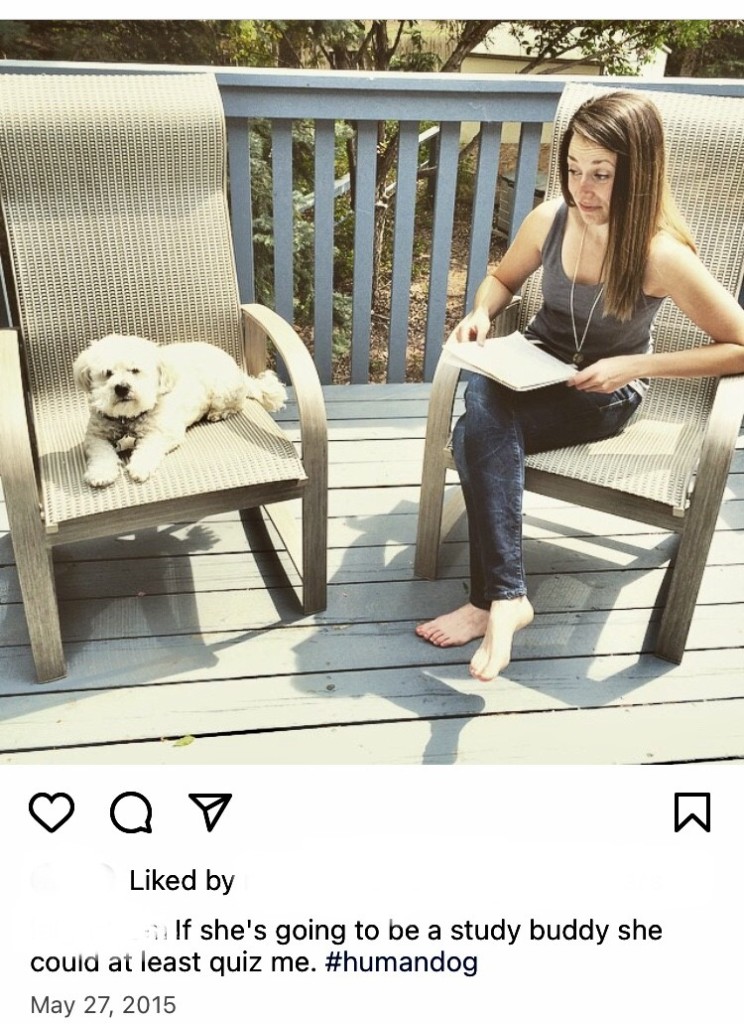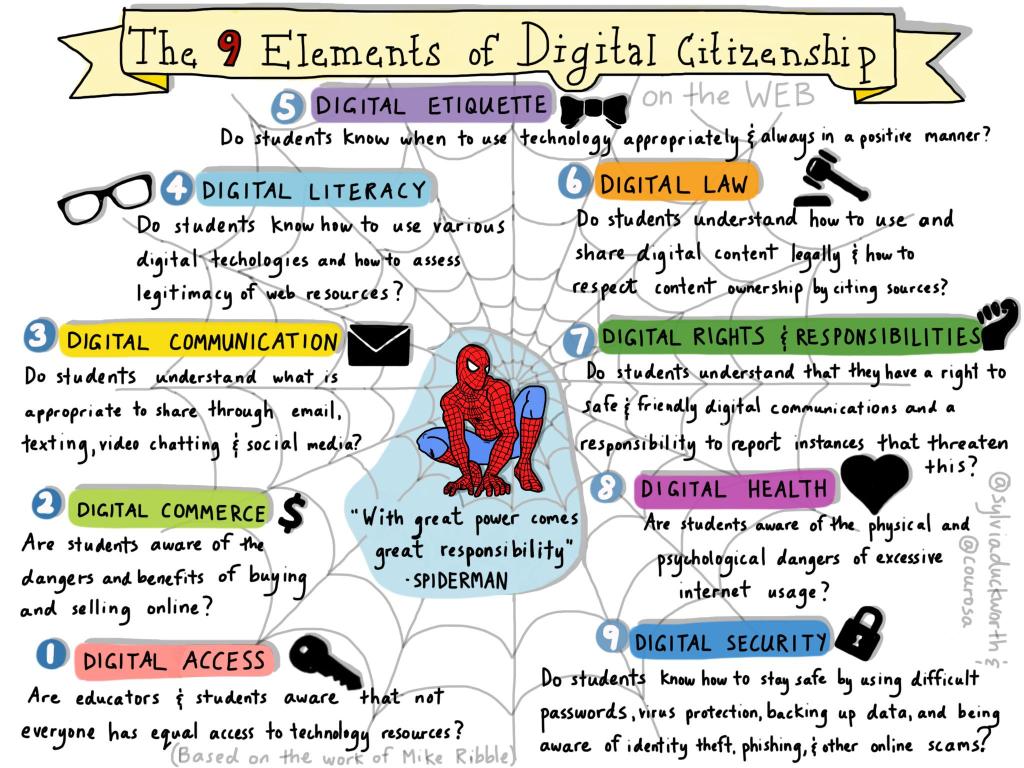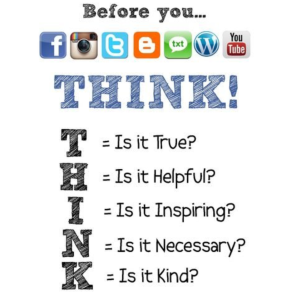A Brief History…
Until I began taking more classes with Alec, I did not really understand what constituted as social media. I understood the basics such as Facebook, Instagram, and Twitter, but I did not realize I had been using social media much longer than I had originally thought. My most significant memory of my social media history throws back to 2004 when I was in Grade 5 and finally got my first email address, which eventually evolved into using MSN Messenger. I remember getting home from school, sitting down at our family’s desktop computer in the living room, turning on my Logitech webcam, and chatting with my friends. Prior to this new and exciting way to connect outside of school, my only other option was our land line.

I used MSN until about Grade 9, as that was when Facebook became popular and MSN more obsolete. However, I had travelled with my family that year and made friends all over the world. We still chatted through MSN, but eventually switched to Facebook. In a post from EC&I 832, I reflect on my experience of getting a Facebook account and developing a positive digital identity. Click for the full story! Facebook was my main source of social media use from 2008-2013. Eventually, I caved and got Instagram in 2013. My brother and I had a competition going to see who would cave first into Instagram… Needless to say, I lost and he is still winning, as he refuses to get it… He’s definitely the more stubborn one. At this time, I was in university and entering my internship. In addition, I had recently started dating my fiancé.

What I appreciate about Instagram is that it has chronicled my life since 2013 and its major milestones. To be honest, I love looking back at old posts, as each post is a snapshot of my life. Since I was almost done university and on the job hunt, I was more conscious about what I posted. I have found my Facebook to be reminiscent of high school and my early days of university, rather than my Instagram… Definitely more cringey, to say the least. I was always pretty conscious of what I posted, but I have found each form of social media represents me at certain points in time.
Digital Citizenship, Identity, and Media Literacy: A Learning Journey
Growing up, the approach to teaching digital citizenship in schools was heavily focused on cyber safety and discouraged the use of the Internet. I found myself being nervous to try different things online, such as researching and creating a PowerPoint presentation. For a long time, I would steer clear of anything technology related and thought chat rooms were dangerous. However, I wasn’t completely wrong. The Internet can be a dangerous place if you lack the skills necessary to navigate it, but that doesn’t mean the best approach is to avoid it altogether. Anything in life that is unfamiliar poses dangers. For example, 16 year olds drive cars, which can be unsafe if the teen lacks the proper training and skills. However, if they have the proper training to do so safely, it allows opportunities for decision making, independence, and eventually expanding on their skillset of becoming a proficient driver. Prior to taking more of Alec’s courses, I was still a little stuck in the avoidance mindset. However, my understanding of social media, digital citizenship, and media literacy has evolved over the years. I’ve also come to understand that as long as these things exist, my understanding of them will be in constant motion as well. Below, I share some resources that have been helpful for me along my digital learning journey.
Digital Citizenship and Identity
It is difficult to write about social media and education without mentioning Mike Ribble’s Nine Elements of Digital Citizenship:
- Digital Access
- Digital Commerce
- Digital Communication
- Digital Literacy
- Digital Etiquette
- Digital Law
- Digital Rights and Responsibilities
- Digital Health
- Digital Security
Personally, I am still gaining an understanding of these elements and locating myself within them. However, when I find myself grappling with these concepts there is a place to to turn to! Alec and Katia created a document titled, Digital Citizenship Education in Saskatchewan Schools. It has been an immensely helpful resource when developing lessons for students and for simply educating myself further on the topic. As I revisited this resource for this blog post, something that stood out to me that didn’t before was the emphasis of citizenship as participation. In order for students to learn how to be a good digital citizen, participation is an integral part of the learning process.

The avoidance strategy of the past and my previous mindset has been proven to be ineffective and if anything, putting students more at risk. In some of the readings provided this week, pros and cons of social media use are highlighted. In relation to TikTok, one article highlighted some of the dangers associated with the platform. Some examples include, sexual exploitation of children, kids giving out personal information to strangers, and cyberbullying. All of this sounds incredibly scary, but it boils down to education. Another article from this week highlighted the positives that can come from social media use with teens:
- It lets them do good
- Strengthens friendships
- Offers a sense of belonging
- Provides support
- Allows for self-expression
Social media has allowed the world to become a smaller place. While it can cause issues, it can also solve them as well when used responsibly.
Something I appreciate about this graphic above is that the Responsible Use Policy takes a collaborative approach with students. When students feel empowered, involved, and capable they are more likely to be accountable for their actions and honour guidelines. In addition, students need to understand the permanent nature of a digital identity and that posts on the Internet do not simply disappear after a designated amount of time. At the beginning of each year, I send home a Technology Contract with the students to sign and review with their families. I like to include the THINK acronym as part of the contract because it offers a guideline of the type of content they should be posting and interacting with. Although these are rules to live by in general, this definitely applies to posting online and maintaining a digital identity that students can be proud of in the future.
Media Literacy
If the pandemic has taught me anything other than how to wash my hands, it is the value of media literacy! Being media literate is means to have the ability to access media, critically analyze it, evaluate the information and source, and being able to produce media. Throughout the pandemic, I’ve seen so many articles that look “real,” but contain falsified information. However, discerning fact from fiction is easier said than done. As a matter of fact, I personally think adults struggle with this more than kids in some ways. Adults are just as much at risk to share false information via social media. Without the proper skills, it is difficult to discern factual from false information, especially when it seems authentic. This is a skill that I am building upon myself. I’ve become better at finding multiple sources to verify information and following people on social media whose views do not necessarily align with my own. This offers me a two-fold understanding of an issue and a well-rounded knowledge base. If you haven’t already made an account and used Common Sense Education, I highly recommend that you do! It is packed with articles and lesson plans on teaching kids about digital citizenship and media literacy. To be honest, those lessons have been helpful in supporting my own understanding of these concepts!
Personal and Professional Impacts of Social Media
As you can see, my growth in these areas is ongoing. On a personal level, I try to keep my social media presence fairly private and minimal. This is mainly because I’ve never been a huge “poster,” unless I find or experience something that I deem is worth sharing. I try to capture meaningful moments and hone in on those, rather than a bunch of posts that won’t matter to me in a year. However, I enjoy keeping in touch with my family who live in New Jersey and seeing what they are up to… Especially now, seeing as the pandemic has put a damper on any travel plans! Even though I don’t post often, I find I waste a lot of time scrolling through my social media, which is a negative for me. Lately, I’ve been trying to be more cognoscente of my screen time and that when I am home with my family, I’m not distracted by my phone. I think the reason why I get so distracted by it is proximity. If I could only use social media from a desktop computer, it would make the experience more cumbersome, deterring me from spending so much time on it. On a professional level, I mainly use Twitter and Instagram to connect with other educators and Pinterest for creative lesson planning ideas. At this point, I haven’t really experienced any major downsides of using social media for professional purposes. Although, if you are not careful and mindful about the types of content you share and post about, you could find yourself in a sticky situation. Some major positives about using social media for professional purposes is seeing what other teachers are doing in different schools, divisions, provinces, or even countries. I had started a YouTube channel as part of my major project for EC&I 832 and it was probably the best thing I did for myself, not knowing at the time a global pandemic was on the horizon. Not only did I come across helpful channels, such as Pocketful of Primary, but I could easily create accessible lessons by making videos for my students during remote learning. The pandemic has certainly caused all kinds of chaos, but it really has pushed me to explore social media in a professional context to connect with others and experiment with different apps and programs to provide my students with learning opportunities from afar.
History of Social Media: A Reflection
The History of Social Media Activity was definitely a walk down memory lane for me! I wasn’t around for the Pre-Commercial Internet (Pre-1991), but some parts brought back memories. For example, Britannica Encyclopedias were available in my elementary school library and I’m pretty sure my parents still have their set. Something that struck me as distinctly different from the other eras was that it was only, “read web.” I didn’t really take notice of that until it was pointed out in class. During this era, the internet was used mainly for content intake versus creation. The Early Internet (1991-2005) was my jam! That was when I first started becoming familiar with it and chatting it up on MSN Messenger! Something that our group discussed that resonated with me was that this era was when computers and the Internet had started being used in schools and there were computer labs, instead of laptop carts. It was mentioned, at the time, teachers knew very little about technology and the Internet. This probably meant that there were very few filters and safety settings on these computers at school. The “work arounds” at that point would have been easy to figure out, I would imagine. This left me wondering if any major issues had occurred in schools during this time regarding computer use? The 2005-2015 and the Current Era are where the “read and write web” were born! Something that I appreciate about these eras is that through the use of social media, the world has become a more accessible place. It has allowed for the development of communities worldwide to connect and bond over common interests or attributes. However, I also think these eras highlight the digital divide more than ever before. Prior to these eras, having technology readily available was a privilege and not unusual if your family did not have a cell phone or desktop computer at home. Now, it surprises me when people don’t use cell phones or have an email address. However, the pandemic has demonstrated the need for access to technology or the Internet in general, as it allows people to stay current and educate themselves. Without access, people can lose the ability to educate, create, seek justice, and connect with others. As a matter of fact, the United Nations deems Internet access a basic human right. The highlighted article explains that governments of countries that are in the midst of civil unrest have the ability to shut down Internet access to take away their civilians rights to freedom and expression. I never would have thought of Internet access as being a right, as in my context, it seems so second-nature. However, it is important to bear in mind that Internet and technological access is not something people around the world can all enjoy freely.
Social media and the Internet have truly provided many opportunities for people. However, to harness its powers, it takes education and practice. I am looking forward to learning more about social media and its impacts on education. Here’s to learning alongside you all and another great semester ahead!
Until next time,
Leigh



Hi Leigh,
Great post! I laughed when you talked about you and your brother holding out to see who would get Instagram first. I was this way with TikTok. I caved and got TikTok and I am so glad that I did. I didn’t realize all the educational opportunities that were available on tikTok until I also took #ECI834 last semester. I look forward to reading more of your posts this semester.
LikeLiked by 1 person
I need to know all about these educational opportunities available on TikTok! Currently I am only seeing “good soup” Tik Toks! Do share!
LikeLike
Leigh! Very thorough blog post – I read yours and realized I missed a lot with my own! You seem like a well seasoned pro at this whole blogging & tweeting thing. Very impressive.
LikeLike
Oh gosh! I had way too many thoughts bouncing around in my head… Hopefully it wasn’t too overwhelming! No way– I read your post and it was fantastic! You made some excellent points and I enjoyed reading it!
LikeLike
WOW… what a flash back when you mentioned MSN Messenger. The hours I spent on our computer chatting with friends even though we saw each other at school and didn’t talk because we were in different friends groups. It really was the beginning of texting in a way for me. It was also great to keep in touch with the friends that moved away to college. I remember changing my status just so my name popped up when someone came online. Thanks for sending on a trip down memory lane. lol. So much thought put into your post. Thanks for sharing.
LikeLiked by 1 person
Leigh, I’m glad that you have been able to see some of the positives that have come from the pandemic. Good for you for learning more about social media in a professional way, and incorporating it more into your teaching practices. I too felt nervous about the evils of the internet when I first started using it, and I have to say, there are still many things that I am weary of. I like how a common theme among many of our peer’s posts, has been the use of MSN and how that was a pivotal moment in many of our social media highlights. You did a great job on your post, and I look forward to learning alongside you this semester!
LikeLiked by 1 person